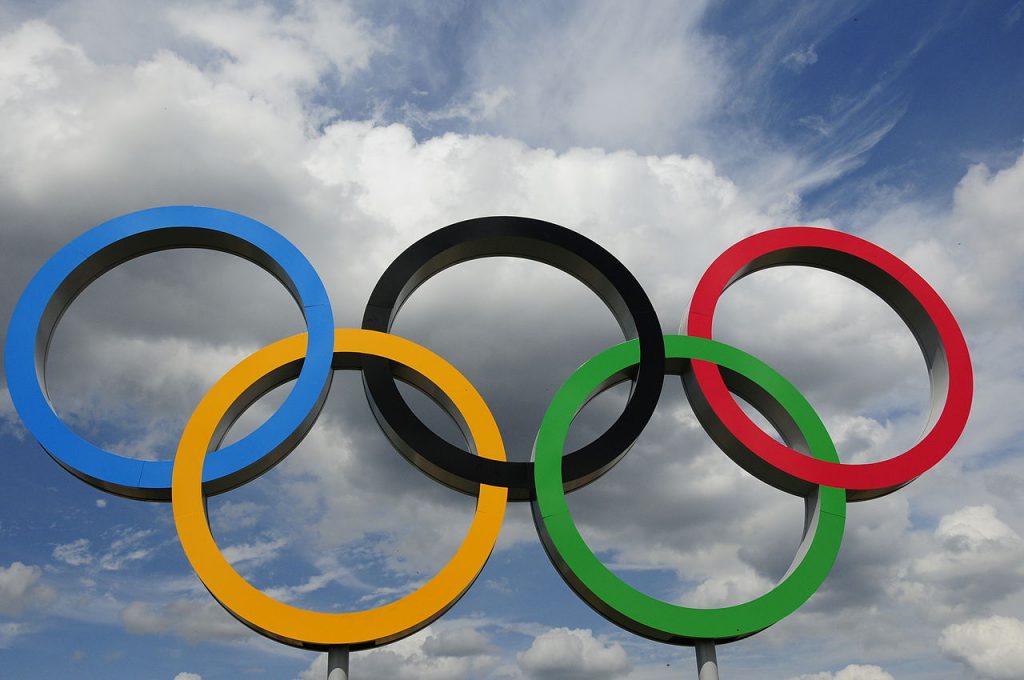Hosting the Olympics is a monumental event for any city and country, bringing global attention, infrastructural development, and various economic benefits. The Olympics is more than just a sports event; it is a catalyst for growth, development, and international cooperation. Here are 10 surprising positive outcomes of hosting it , showcasing how the event can profoundly impact the host city and nation.
1. Economic Boost
Olympics hosting often leads to a significant economic boost for the host city and country. The influx of tourists, athletes, and media personnel generates substantial revenue for local businesses. Hotels, restaurants, and retail stores experience increased sales, contributing to the local economy. Additionally, the construction of Olympic venues and infrastructure creates jobs, stimulating economic growth.
2. Infrastructure Development
Olympics infrastructure development is one of the most visible and long-lasting benefits of hosting the Games. The event necessitates the construction of sports venues, transportation networks, and accommodation facilities. These developments often leave a legacy of improved infrastructure that benefits the host city for years. Improved public transportation, roads, and airports enhance the quality of life for residents and attract future investments.
3. Urban Regeneration
Olympics urban regeneration projects are frequently initiated as part of the preparations for hosting the Games. Derelict and underdeveloped areas are revitalized, transforming them into vibrant, economically productive spaces. These projects often include the creation of parks, recreational areas, and cultural centers, enhancing the overall attractiveness of the city and improving residents’ quality of life.
4. Tourism Surge
Olympics tourism surge is a significant benefit for host cities. The global attention the Olympics attract serves as a powerful marketing tool, promoting the city as a tourist destination. The influx of visitors during the event and the increased media coverage can lead to a sustained increase in tourism even after the Games have ended. Tourists are drawn to explore the host city, its culture, and its landmarks, contributing to the local economy.
5. International Recognition and Prestige
Olympics international recognition and prestige are invaluable benefits of hosting the Games. The host city and country are thrust into the global spotlight, enhancing their international profile. This increased visibility can attract foreign investments, promote trade, and foster diplomatic relationships. The prestige associated with hosting it can also boost national pride and unity among citizens.
6. Community Engagement and Social Benefits
Olympics community engagement and social benefits are often overlooked but equally important outcomes of hosting the Games. The event can unite communities, fostering a sense of pride and shared purpose. Volunteer programs and community involvement in the planning and execution of the Olympics create a sense of ownership and engagement. Additionally, the social benefits of improved sports facilities and programs encourage healthy lifestyles and community cohesion.
7. Sports Development and Legacy
Olympics sports development and legacy are significant outcomes of hosting the Games. The construction of world-class sports facilities and the promotion of sports at the grassroots level lead to the development of local talent. Hosting the Olympics can inspire a new generation of athletes and increase participation in sports. The legacy of sports infrastructure and programs can contribute to long-term improvements in public health and sports performance.
8. Technological Advancements
Olympics technological advancements are often driven by the need to host a successful and efficient event. Innovations in broadcasting, telecommunications, and security technologies are frequently introduced during the Olympics. These advancements not only enhance the experience for athletes and spectators but also leave a lasting impact on the host city’s technological landscape. Improved digital infrastructure and technological capabilities can attract future tech investments and innovation.
9. Environmental Benefits
Olympics environmental benefits are increasingly prioritized in recent years. Many host cities are committed to implementing sustainable practices and green technologies in their preparations. Initiatives such as renewable energy, waste reduction, and sustainable transportation are integrated into the planning process. These efforts can lead to long-term environmental benefits, setting a precedent for future events and urban development projects.
10. Long-Term Economic Growth
Olympics long-term economic growth is a potential outcome of hosting the Games. The improvements in infrastructure, increased tourism, and enhanced international profile can contribute to sustained economic development. The legacy of the Olympics can attract future investments, promote economic diversification, and create new business opportunities. The event serves as a catalyst for long-term economic growth and prosperity for the host city and country.
Economic Boost
Olympics hosting brings an economic boost that extends beyond the duration of the event. The influx of tourists and global exposure create a ripple effect, benefiting various sectors. Local businesses experience increased sales, and the hospitality industry thrives. The economic impact can be measured in terms of job creation, increased tax revenues, and the stimulation of local economies.
Infrastructure Development
Olympics infrastructure development projects are often transformational. Host cities undertake massive construction projects to build sports venues, transportation networks, and accommodation facilities. These developments improve urban infrastructure, enhancing the quality of life for residents. The benefits of improved infrastructure extend beyond the event, attracting future investments and facilitating economic growth.
Urban Regeneration
Olympics urban regeneration projects breathe new life into underdeveloped areas. Host cities seize the opportunity to revitalize neglected neighborhoods, creating vibrant and economically productive spaces. These projects often include the development of parks, recreational areas, and cultural centers, improving the overall attractiveness of the city. The positive impact of urban regeneration is felt by residents and visitors alike.
Tourism Surge
Olympics tourism surge is a major benefit for host cities. The global attention and increased media coverage promote the city as a tourist destination. The influx of visitors during the event boosts local businesses and the hospitality industry. The long-term effects of increased tourism can contribute to sustained economic growth, as tourists continue to explore the host city and its attractions.
International Recognition and Prestige
Olympics international recognition and prestige elevate the host city’s global profile. The event attracts international attention, fostering diplomatic relationships and promoting trade. The prestige associated with hosting the Olympics can boost national pride and unity among citizens. The enhanced international profile can attract foreign investments and create new business opportunities.
Community Engagement and Social Benefits
Olympics community engagement and social benefits foster a sense of pride and shared purpose among residents. Volunteer programs and community involvement create a sense of ownership and engagement. The improved sports facilities and programs encourage healthy lifestyles and community cohesion. The social benefits of hosting the Olympics extend beyond the event, contributing to long-term improvements in public health and community well-being.
Sports Development and Legacy
Olympics sports development and legacy inspire a new generation of athletes. The construction of world-class sports facilities and the promotion of sports at the grassroots level lead to the development of local talent. The legacy of sports infrastructure and programs can contribute to long-term improvements in public health and sports performance. Hosting it can leave a lasting impact on the host city’s sports culture.
Technological Advancements
Olympics technological advancements enhance the experience for athletes and spectators. Innovations in broadcasting, telecommunications, and security technologies are frequently introduced during the Olympics. These advancements leave a lasting impact on the host city’s technological landscape. Improved digital infrastructure and technological capabilities can attract future tech investments and innovation.
Environmental Benefits
Olympics environmental benefits are increasingly prioritized in recent years. Host cities are committed to implementing sustainable practices and green technologies in their preparations. Initiatives such as renewable energy, waste reduction, and sustainable transportation are integrated into the planning process. These efforts can lead to long-term environmental benefits, setting a precedent for future events and urban development projects.
Long-Term Economic Growth
Olympics long-term economic growth is a potential outcome of hosting the Games. The improvements in infrastructure, increased tourism, and enhanced international profile contribute to sustained economic development. The legacy of the Olympics attracts future investments, promotes economic diversification, and creates new business opportunities. Hosting it serves as a catalyst for long-term economic growth and prosperity for the host city and country.
Conclusion
The Olympics brings numerous positive outcomes for host cities and countries. From economic boosts and infrastructure development to international recognition and sports legacy, the benefits are multifaceted. Host cities experience long-term economic growth, improved urban infrastructure, and increased tourism. The event fosters community engagement, social benefits, and environmental sustainability. Hosting the Olympics is a transformative experience that leaves a lasting impact on the host city and nation.
For more detailed information on the financial aspects of hosting it, you can visit the Wikipedia page on the Olympics’ economic impact.
To have more about Share Market , read our article on Share Market Shockwaves.

